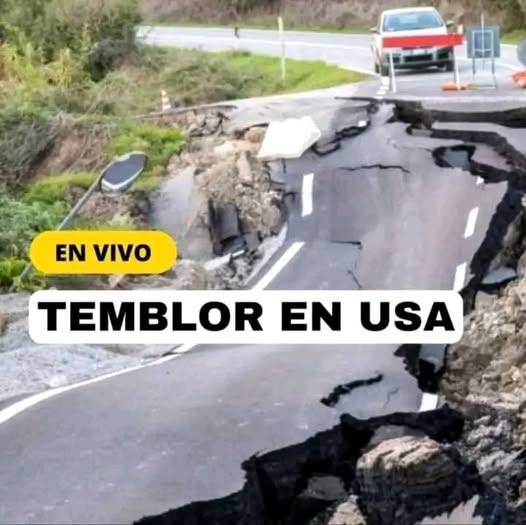EXPLOSIVE SOCIAL MEDIA POST IGNITES LEGAL FIRESTORM: HIGH-PROFILE POLITICAL FIGURE ON THE BRINK OF DEFAMATION DISASTER
In a stunning upheaval shaking the foundations of American political discourse, a single social media post has ignited a legal tempest with ramifications that could redefine political communication forever. Legal experts, political analysts, and constitutional scholars alike are scrambling to unravel what may become one of the most consequential defamation battles of recent times.
This explosive incident has sent shockwaves from Capitol Hill to courtrooms nationwide, exposing a volatile crossroads where fiery political rhetoric clashes with complex legal boundaries. It’s a vivid reminder that in today’s hyper-connected digital era, one careless word online can spiral into a career-shattering crisis.
THE PERFECT STORM OF POLITICS, LAW, AND DIGITAL DANGER
At the heart of this controversy lies a volatile cocktail of legal peril, political strategy, and constitutional quandaries. As elected officials wield social media platforms with unprecedented immediacy, they face heightened risks where the line between bold speech and legally actionable defamation grows razor-thin.
Legal authorities from across the spectrum warn this case exemplifies a new era of legal vulnerability for public figures. Navigating the intricate dance of First Amendment protections alongside defamation law demands surgical precision—especially when allegations carry the power to ruin reputations overnight.
WHEN SOCIAL MEDIA BECOMES A LEGAL LANDMINE
The ease and speed of posting on social media have dramatically shifted the political risk landscape. What once might have been a guarded statement now explodes into viral controversy in seconds—forever archived, shared, and dissected under the unforgiving glare of public scrutiny.
Legal scholars caution that the informal tone of social media lulls many into a false sense of security, overlooking that digital posts carry the same legal weight as official declarations. For politicians, whose words echo far beyond typical social circles, the stakes couldn’t be higher.
Recent landmark defamation cases underscore that even seasoned media professionals can face crippling financial repercussions when opinion bleeds into damaging falsehood. And with public figures increasingly taking claims to court, the era of careless political commentary may be over.
THE POST THAT CHANGED EVERYTHING
The flashpoint? A provocative post published on X (formerly Twitter) linking serious criminal accusations to a leading political figure—crossing what legal experts call the “line of no return” from protected political speech to potentially actionable defamation.
Its specific language and context have drawn intense scrutiny. Courts must determine if this was mere hyperbolic opinion or a precise factual claim, one that can be proven false—and thus legally perilous. The viral spread of the post only amplifies potential damages, transforming a digital slip into a nationwide legal battleground.
THE FIGURE AT CENTER STAGE
At the eye of this storm is New York Democratic Representative Alexandria Ocasio-Cortez, known for her fierce, unfiltered social media presence. Her post referred to former President Donald Trump as a “rapist” linked to his administration’s handling of sensitive documents—an assertion that legal experts quickly flagged as dangerously inaccurate.
While Trump was found liable for sexual assault in a civil case brought by E. Jean Carroll, a jury explicitly did not find him guilty of rape—a distinction that makes Ocasio-Cortez’s claim legally vulnerable. This subtle but crucial difference may transform a politically charged tweet into a costly legal liability.
LEGAL EXPERTS SOUND THE ALARM
Legal minds across party lines agree: this post teeters on the edge of defamation, potentially meeting the demanding “actual malice” standard established by the landmark New York Times v. Sullivan ruling—a precedent designed to protect free speech but also hold public figures accountable for reckless falsehoods.
Even Utah Senator Mike Lee, a lawyer himself, underscored the gravity: “You’ve managed to incur defamation liability even under the most lenient standards. Wow.” This consensus signals the legal storm brewing is no ordinary political skirmish.
PRECEDENTS AND WARNING SIGNS
This controversy echoes a recent high-profile defamation case involving ABC News anchor George Stephanopoulos, who settled a $16 million lawsuit for falsely stating Trump was found liable for rape in the same Carroll case. The precedent sends a clear message: even experienced media entities face staggering penalties for factual misstatements.
Stephanopoulos’ costly settlement sets a tangible benchmark, hinting at the magnitude of financial and reputational damage at stake for anyone repeating similar false claims.
THE PUBLIC AND POLITICAL FALLOUT
Social media erupted with sharp critiques, calling out the post’s inaccuracies and warning of serious legal consequences. Comments ranged from pointed legal admonishments to calls for retractions, underscoring broad awareness that the digital battlefield is also a legal minefield.
Meanwhile, the Trump administration responded with aggressive rhetoric, blending political attacks and hints of legal action—signaling their intent to pursue this controversy on multiple fronts.
WHAT COMES NEXT?
The legal roadmap ahead offers several paths: from costly defamation lawsuits seeking damages, to congressional ethics investigations, to demands for public apologies. The outcome will hinge not only on courtroom battles but also on political strategy and public perception.
Whether Ocasio-Cortez chooses to retract, defend, or escalate this digital war will shape the future of political speech—and the limits of accountability in the age of social media.
A TURNING POINT FOR POLITICAL COMMUNICATION IN THE DIGITAL AGE
This explosive episode serves as a watershed moment, exposing the razor’s edge where bold political expression meets harsh legal reality. It signals that in the era of instant, viral communication, every public statement carries weighty consequences—legal, financial, and political.
For elected officials, the lesson is clear: the age of consequence-free political rhetoric is fading fast. The digital era demands sharper precision, deeper legal awareness, and an understanding that a single tweet can trigger a legal maelstrom capable of reshaping careers and political landscapes alike.
As the legal drama unfolds, its resolution will chart new territory—defining the future rules of engagement for politicians, media figures, and public personalities navigating the perilous crossroads of free speech and accountability in America’s digital democracy.


